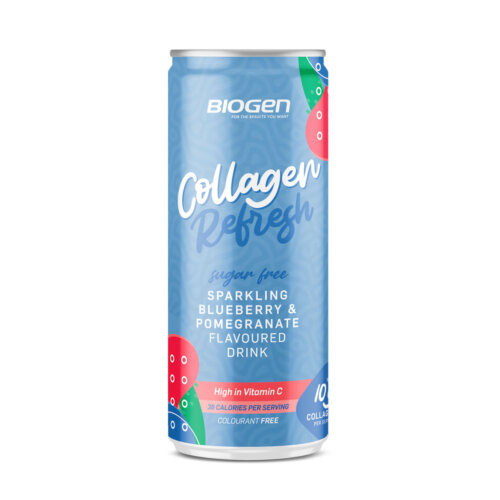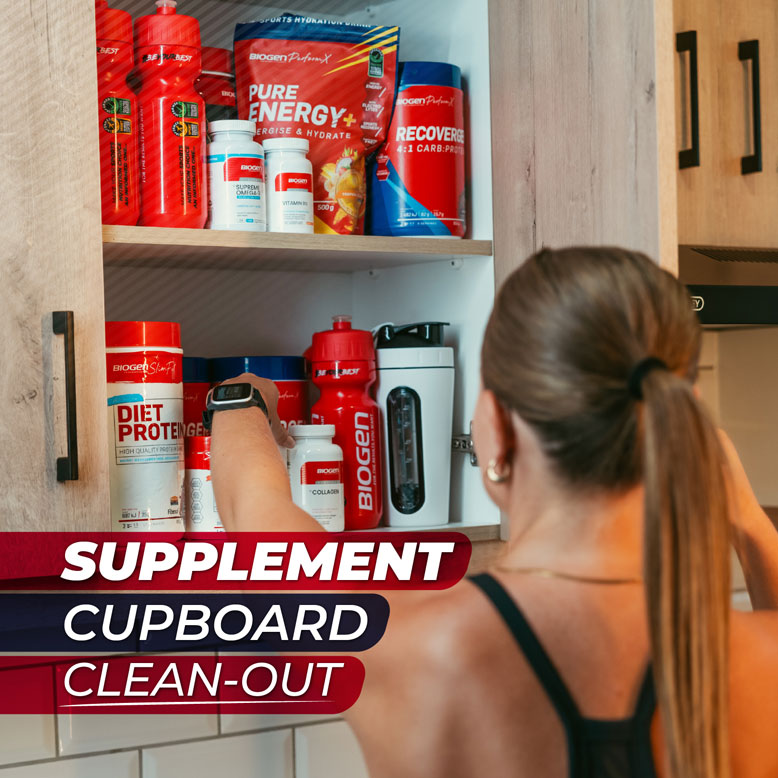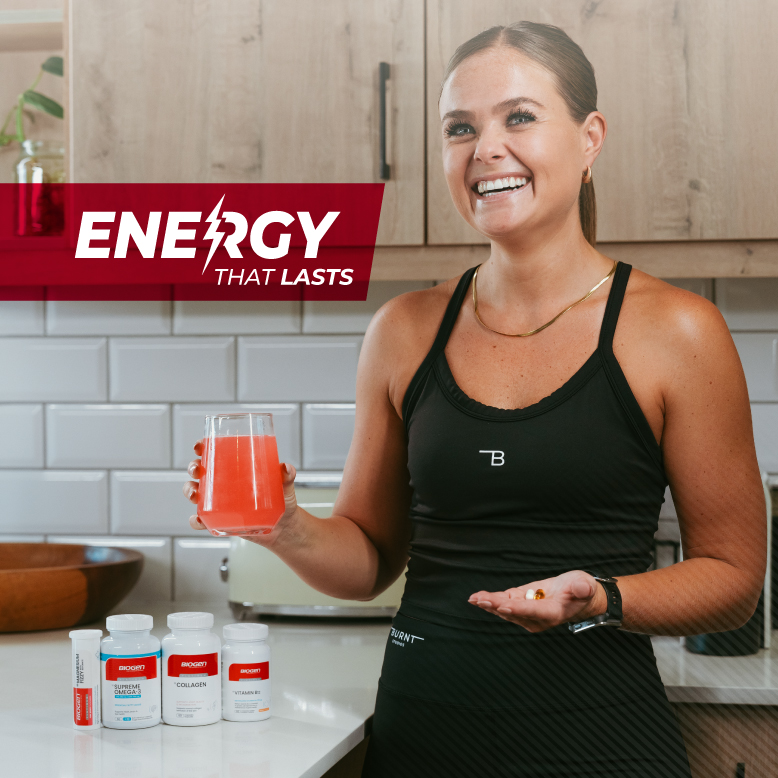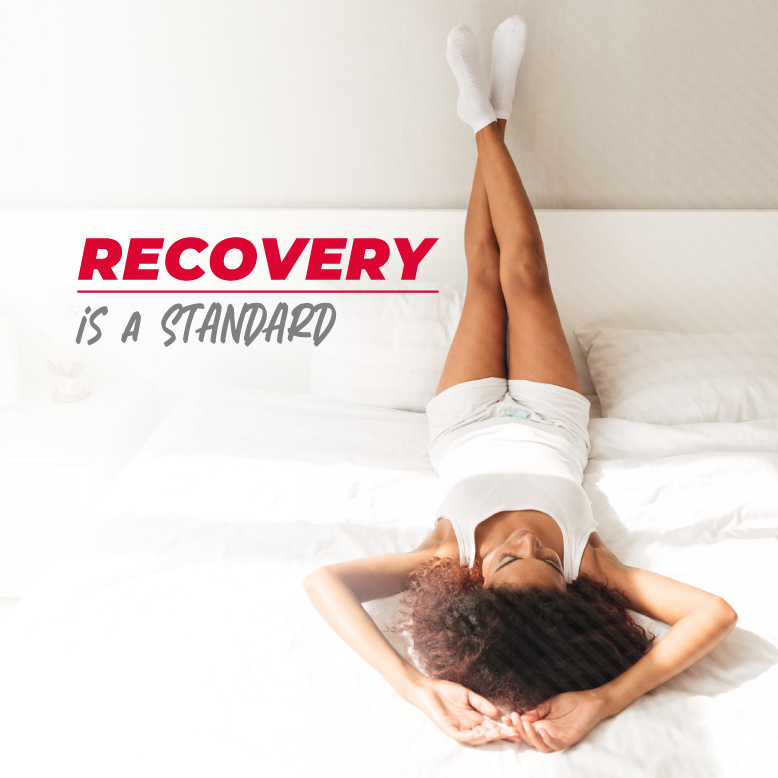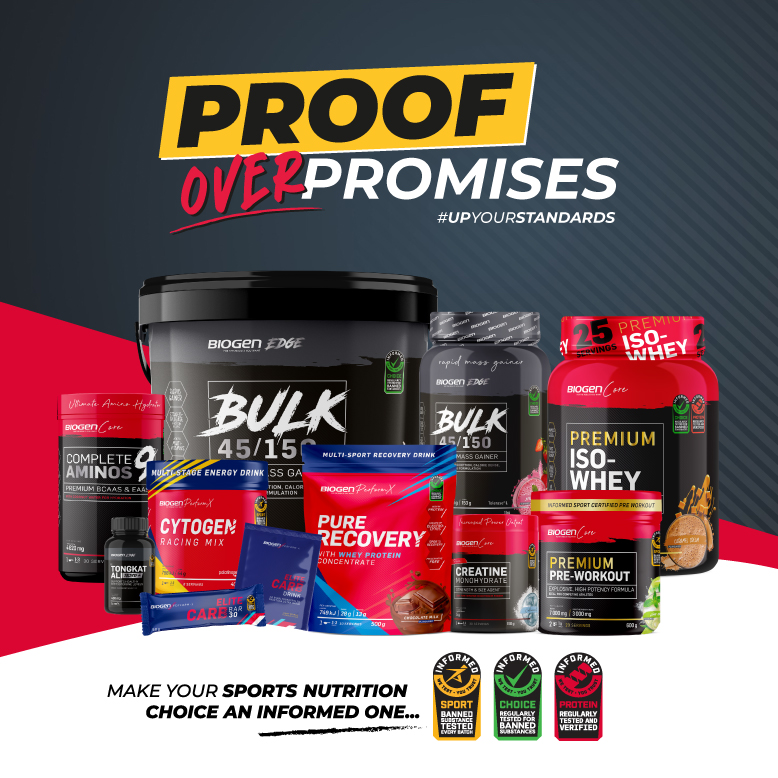
The Link Between Fitness and Skincare: How Your Lifestyle Impacts Your Skin
Many think the secret to radiant skin and a youthful complexion starts in the bathroom with a comprehensive skincare routine.
However, the truth is that an active and healthy lifestyle is the foundation for healthy, vibrant skin.
Nourishing nosh
Your journey starts in the kitchen with a nourishing and balanced diet that provides a range of essential nutrients needed to support and maintain skin health.
These include antioxidants found in colourful fruits and vegetables, like vitamins C and E, and beta-carotene, which protect skin cells from damage caused by free radicals, pollution, and UV radiation (known as photoaging)¹.
Vitamin C is also essential for collagen production, which keeps skin firm and elastic while zinc plays an important role in healing wounds and tissue repair².
Your skin also needs healthy fats, particularly omega-3 fatty acids, which help maintain moisture and support cell health and structure. You can find these beneficial fats in foods, like fatty fish, flaxseeds, and walnuts.
Omega-3s also reduce inflammation, which can benefit conditions like eczema and psoriasis³.
Get your sweat on
Getting active is the next step (or 10,000) on your journey to a glowing complexion.
Regular exercise is associated with increased blood flow to the skin, elevated skin temperature, and improved skin moisture, which has been shown to improve skin structure and rejuvenate its appearance⁴.
Regular exercise and physical activity can improve your skin health and condition by improving blood flow and delivering oxygen and nutrients that are essential for healthy skin cells.
Interestingly, while many people believe sweating can help remove toxins and clear pores, there is little scientific evidence to support this claim.
What research⁵ reveals is that beneficial bacteria (microbiota) that live on the skin thrive and grow when exposed to sweat and sebum (a natural oily substance that protects and moisturizes the skin).
However, excessive sweating can promote bacterial overgrowth, which may result in breakouts in sensitive individuals. As such, it is preferable to wear loose-fitting, breathable clothing, and wash your face and body after exercising to remove sweat and dirt.
Sun protection is vital
If you like to take your training outdoors, it is vital that you protect your skin against the harmful effects of exposure to the sun’s ultraviolet (UV) rays.
Without protection from a product like Biogen Sun Care 50 can cause skin damage, premature ageing, skin spotting and discolouration, freckling, and burns that increase your risk for skin cancer.
The best protection is to avoid direct exposure to sunlight, which you achieve by staying indoors between 10h00-15h00, wearing UV-protective clothing while outside, or applying sunblock that contains a sun protection factor (SPF) of 30 or higher.
Biogen Sun Care 50 offers an SPF of 50, which means that it would take 50 times longer for your skin to start burning compared to using no sunscreen. As such, Biogen Sun Care 50 offers a high level of protection from the sun’s UVA and UVB rays, which are responsible for causing sunburn.
This sunscreen is also ideal for active individuals with application possible on dry or wet skin and quick absorption. It is also non-greasy, non-sticky and water-resistant.
Protect from the inside out
The sun’s UV rays can also destroy elastin and collagen tissue⁶, which can lead to sagging skin and wrinkles.
Supplements and nutricosmetic products that provide nutrients like antioxidants and collagen, offering a convenient and effective way to nourish your skin. These products contain compounds that support cell repair, or molecules that stimulate the natural production of the compounds.
Biogen has created a comprehensive nutricosmetics range to complement your current skincare regimen by nourishing and supporting the cells in the deeper layers for holistic skin health.
The Biogen RE | NU range offers various beauty supplements that rejuvenate and renew the natural radiance of your hair, skin and nails from the inside out. These include:
FEATURED:
References:
- Petruk G, Del Giudice R, Rigano MM, Monti DM. Antioxidants from Plants Protect against Skin Photoaging. Oxid Med Cell Longev. 2018 Aug 2;2018:1454936. doi: 10.1155/2018/1454936. PMID: 30174780; PMCID: PMC6098906.
- Lin PH, Sermersheim M, Li H, Lee PHU, Steinberg SM, Ma J. Zinc in Wound Healing Modulation. Nutrients. 2017 Dec 24;10(1):16. doi: 10.3390/nu10010016. PMID: 29295546; PMCID: PMC5793244.
- Sawada Y, Saito-Sasaki N, Nakamura M. Omega 3 Fatty Acid and Skin Diseases. Front Immunol. 2021 Feb 5;11:623052. doi: 10.3389/fimmu.2020.623052. PMID: 33613558; PMCID: PMC7892455.
- Oizumi R, Sugimoto Y, Aibara H. The Potential of Exercise on Lifestyle and Skin Function: Narrative Review. JMIR Dermatol. 2024 Mar 14;7:e51962. doi: 10.2196/51962. PMID: 38483460; PMCID: PMC10979338.
- Swaney MH, Nelsen A, Sandstrom S, Kalan LR. Sweat and Sebum Preferences of the Human Skin Microbiota. Microbiol Spectr. 2023 Feb 14;11(1):e0418022. doi: 10.1128/spectrum.04180-22. Epub 2023 Jan 5. PMID: 36602383; PMCID: PMC9927561.
- Rittié L, Fisher GJ. Natural and sun-induced aging of human skin. Cold Spring Harb Perspect Med. 2015 Jan 5;5(1):a015370. doi: 10.1101/cshperspect.a015370. PMID: 25561721; PMCID: PMC4292080.


